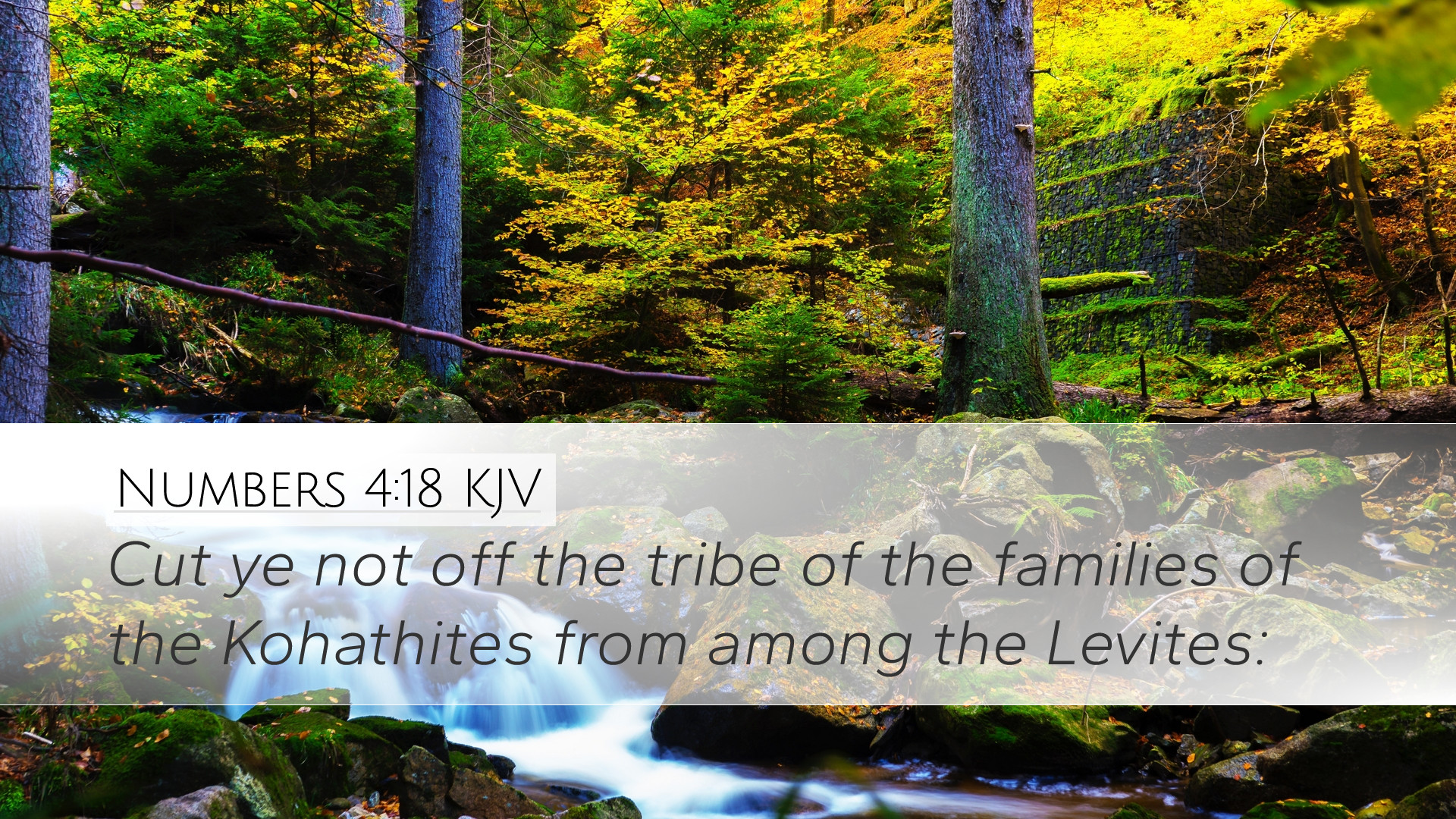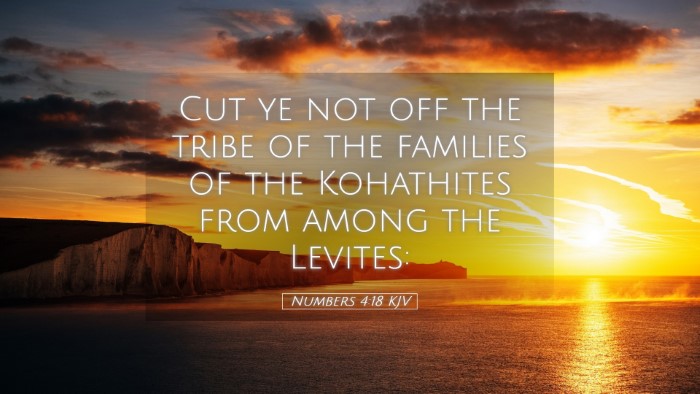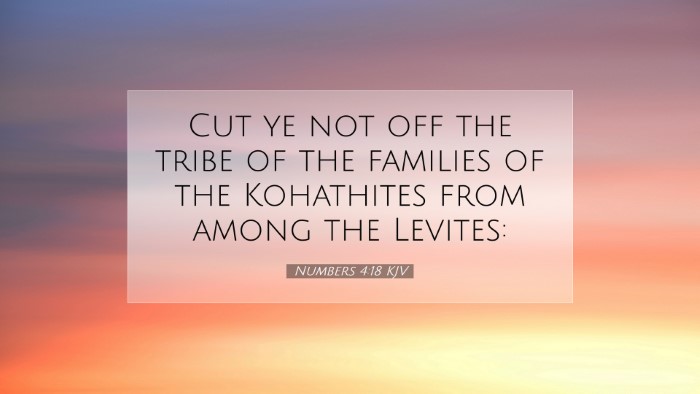Commentary on Numbers 4:18
Bible Verse: Numbers 4:18 - "Do not cut off the tribe of the families of the Kohathites from among the Levites."
Introduction
The passage in Numbers 4:18 provides significant insight into the responsibilities and roles assigned within the Levitical priesthood, particularly focusing on the Kohathites. This commentary aims to explore the depth of this verse through a blend of insights from notable public domain commentaries such as those by Matthew Henry, Albert Barnes, and Adam Clarke.
The Context of the Kohathites
The Kohathites were one of the families within the tribe of Levi. Their primary role involved the care of the most sacred objects of the tabernacle. As elaborated in various commentaries, their tasks were vital, ensuring that the items used in worship remained holy and were handled appropriately.
Insights from Matthew Henry
Matthew Henry emphasizes the importance of the Kohathites in their unique position amongst the Levites. He points out that their responsibilities went beyond mere logistical duties; they were deeply involved in the spiritual life of Israel. Henry notes:
"The Kohathites were charged not only with the heavy and sacred items but also with the responsibility of maintaining the holiness of the tabernacle and its services."
This underscores the notion that spiritual leadership and practical ministry are inseparably linked in the life of God's people.
Albert Barnes’ Perspective
Albert Barnes gives a compelling analysis of the particular warning not to "cut off" the Kohathite families. He suggests:
"This directive signifies God's continuing covenant with Aaron and his descendants, ensuring that the line of priestly service remains intact."
Barnes elaborates on the significance of maintaining the lineage of the Kohathites, suggesting that their exclusion would result in a crucial breakdown in the sacred duties meant to be preserved by this family. This reflects a broader theological theme of God's faithfulness to His covenant—demonstrating that specific roles are divinely appointed and essential for communal worship.
Adam Clarke’s Interpretation
Adam Clarke's commentary lends itself to understanding the organizational structure within the Levitical system. He highlights:
"The Kohathites were divinely ordained in their responsibilities, and their exclusion would disrupt the entire tabernacle service."
His insights draw attention to the divine sovereignty inherent in organizational roles within the people of God. Clarke suggests that each person's assignments in the community of faith reflect God's order and purpose, thus inviting reflection on how church leaders today might view their own roles.
The Theological Implications
The directive not to cut off the Kohathites serves as a reminder of God’s providential care and the importance of each person's role within the larger body of believers. The implications can be dissected into several key themes:
- Preservation of Sacred Duties: The Kohathites’ duties underscore the importance of maintaining the sanctity of worship within the community.
- Divine Design in Leadership: God's appointed leaders carry a significant responsibility, highlighting the need for qualifications and adherence to God’s standards.
- Communal Responsibility: Each family and individual has a role that contributes to the whole, emphasizing unity in diversity—a theme prevalent in the New Testament church.
Practical Applications for Today’s Ministry
For pastors and church leaders, this text offers several actionable insights:
- Valuing Tradition and Heritage: Just as the lineage of the Kohathites was integral, today’s churches must cherish their heritage of faith while being open to new expressions of worship.
- Recognizing Individual Roles: Every member has a God-ordained responsibility; recognizing and encouraging those roles fosters a spirit of collaboration and unity within the church.
- Preserving Holiness: The call to holiness is as essential today as it was for the Kohathites, prompting leaders to ensure that worship remains a sacred act.
Conclusion
Numbers 4:18 is a powerful reminder of God’s order, His faithfulness to His people, and the importance of individual roles in the life of the community of faith. As we reflect on the implications of this verse, may we be moved to ensure that every facet of worship and service within our churches upholds the holiness and reverence that God commands. Just as the Kohathites were vital to the rhythm of Israel’s worship, so too are all believers integral to the life of the church today.


